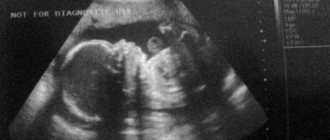Caring mothers, especially in the first months of a child’s life, worry about a lack of milk.
If there really is not enough of it, or the mother cannot breastfeed at all, supplementary feeding is necessary, that is, the introduction of formula milk into the child’s diet.
Supplementing your baby with formula is necessary in the following cases:
- Lack of milk. A hungry baby will noticeably lag in weight gain; any pediatrician can easily determine this using a scale. However, many mothers panic in vain; according to statistics, only about 5% actually face this problem; everyone else just needs to be patient and have the right psychological mindset.
- Mom's illness. If a mother is sick and needs to take medication, doctors recommend giving up breastfeeding for a few days and switching to formula milk. In such a situation, milk may be harmful to the baby.
- The need to go to work. If the mother needs to leave home, for example, to work, you can resort to mixed feeding and give breast milk at least 2-3 times a day.
- The child refuses breast milk. Some children cannot be taught to breastfeed, and the only option left is to use formula milk.
- Other reasons: the birth of twins, Rh conflict with the child, cesarean section, large blood loss during childbirth, etc.
Problems with breastfeeding after formula supplementation
The main problem with breastfeeding after maternity hospital supplementation with formula is the difficulty of establishing normal lactation. The baby may simply refuse to breastfeed, or the milk will gradually disappear if the baby sucks less frequently and less actively.
What are the dangers of supplementary feeding for a baby? Here the list is quite extensive:
- problem with stool.
- allergies.
- dysbacteriosis.
- colic.
Having got used to the bottle, it is difficult for the baby to switch to the breast, because milk flows from the nipple without problems, but you have to work hard with the breast.
In maternity hospitals, supplementary feeding from a syringe or teaspoon is practiced. This, of course, is preferable, but if possible, you should completely abandon breast milk substitutes. If both mother and baby are healthy, there is no need for supplementary feeding!
How to remove the mixture and switch to GW
An important rule: the refusal of supplementary feeding in favor of breastfeeding should be smooth and gradual.
It is necessary to calculate how much artificial nutrition the child receives. Further, from the first to the third day of transition from SW to HF, the total daily amount of the mixture should be reduced by 30 ml. It is important to count the number of bowel movements per day - at least 6 wet diapers. If everything is in order, the baby does not starve. In every case, you need to offer the baby the breast.
The breast is always the first priority when mixed feeding. Supplemental feeding is given only after the baby has emptied the breast, showing signs of malnutrition, or refuses to continue suckling.
From day 4, another 30 ml of daily (not one-time!) supplementary feeding is removed. So, a gradual reduction in supplementary feeding is carried out every 2-3 days. If the amount of breast milk allows, you can use expressed milk instead of formula. If weight gain has slowed down and there are fewer wet diapers per day than normal, you should return to the previous amount of supplementary feeding for several days.
When switching from mixed to breastfeeding, lactation should be stimulated. A child can do this best. The more often it is at the breast, the more milk is produced. But how can you get a little one who doesn’t want to breastfeed? The “nesting” method works well when mother and child are in continuous contact, the baby is often held in arms or in a sling, and sleeping together is encouraged. It is especially important to offer the breast at night. Night feedings are the most valuable, and it is noted that at night the baby is more willing to take the nipple into his mouth.
Switching to full breastfeeding after supplementary feeding with formula in the maternity hospital is possible
Sometimes it is not so easy to switch from supplementary feeding with formula milk in maternity hospitals to full breastfeeding. When choosing a maternity hospital, it is advisable to find out in advance whether the newborns and their mother are in a shared ward or not. When staying together, only the mother can control the baby’s nutrition entirely. If supplementary feeding was still necessary, once lactation was established and the condition of both mother and child was normalized, breastfeeding could be established. You should be patient and have a firm intention to breastfeed your baby. After all, mother’s milk is the best that nature could create for feeding a newborn.
Caring mothers, especially in the first months of a child’s life, worry about a lack of milk.
If there really is not enough of it, or the mother cannot breastfeed at all, supplementary feeding is necessary, that is, the introduction of formula milk into the child’s diet.
Supplementing your baby with formula is necessary in the following cases:
- Lack of milk. A hungry baby will noticeably lag in weight gain; any pediatrician can easily determine this using a scale. However, many mothers panic in vain; according to statistics, only about 5% actually face this problem; everyone else just needs to be patient and have the right psychological mindset.
- Mom's illness. If a mother is sick and needs to take medication, doctors recommend giving up breastfeeding for a few days and switching to formula milk. In such a situation, milk may be harmful to the baby.
- The need to go to work. If the mother needs to leave home, for example, to work, you can resort to mixed feeding and give breast milk at least 2-3 times a day.
- The child refuses breast milk. Some children cannot be taught to breastfeed, and the only option left is to use formula milk.
- Other reasons: the birth of twins, Rh conflict with the child, cesarean section, large blood loss during childbirth, etc.
How to supplement with formula
Many parents do not consider it important to pay attention to the choice of formula milk. But not every composition is suitable even for a healthy child, and sometimes mothers have to try several options before choosing the optimal one for the baby.
- For children under three months of age, mixed feeding with both mother's milk and artificial formula is recommended,
- babies under the age of 6 months are prescribed a recipe whose composition is as close as possible to mother’s milk, the number 1 is on their packaging,
- children with lactose allergies are given soy formulas, and for tummy problems, options with probiotics,
- It takes about three days to determine whether a particular artificial composition is suitable for supplementary feeding while breastfeeding a child.
When choosing formulations for supplementary feeding, it is worth considering the following points:
- dry mixtures are stored longer than liquid ones,
- breeding must be strictly according to instructions,
- the mixture must contain whey, carnitine, linoleic acid, taurine; the presence of palm oil is considered a disadvantage.
Rules for introducing supplementary feeding:
- Use a pipette or spoon for additional feeding so that the baby does not refuse the mother's breast.
- If you cannot put your baby to the breast, use a manual or automatic breast pump to express milk.
- Bottle feeding should be done only after the baby is attached to the breast. The more often you apply, the more actively milk will be produced, and in the future you can refuse artificial feeding.
- To preserve milk, the mother needs to eat properly and drink enough fluids.
Calculation of the amount of formula for supplementary feeding
- up to two months - 1/5 of the child’s weight, - up to 4 months - 1/6 of the weight, - up to 6 months - 1/7 of the weight, - up to 12 months - 1/8-1/9 of the weight.
Which mixture to choose
The recipe for supplementary feeding of a child should be as similar in composition as mother’s milk and not cause allergies or digestive problems.
Omega-3 and Omega-6 fatty acids are extremely important for the development of a child’s brain; palm oil, which slows down the absorption of calcium, is not recommended.
Important is lutein, necessary for visual acuity, nucleotides (strengthens the immune system), and probiotics.
Of the most popular adapted formulas suitable for supplementary feeding of a baby, it is worth noting:
- Nutrilon (contains nucleotides, iodine, whey, prebiotics, one of the disadvantages is that it contains palm oil),
- Similac (contains taurine, nucleotides, iodine, lactose),
- Unstogen (contains lactose, turin, prebiotics, deficiencies - skim milk, iodine and soy lecithin),
- Baby (contains iodine, lactose, nucleotides, prebiotics).
VIDEO ON THE TOPIC Do I need to add more solder?
Breastfed babies do not need extra water except on hot days or when the baby is sick. In the first few months, the volume of drink should not exceed 100-150 ml.
Supplementing with formula at night - rules
What to do if the baby does not sleep at night and wants to eat? Supplementary feeding of a newborn
At night it is performed in the same way as during the day. But if possible, experts recommend putting the baby to the breast. This will stimulate milk production.
What to do if a child refuses formula feeding
The situation when a baby refuses supplementary feeding is most often explained by the fact that the baby began to have enough breast milk and began to gain the missing weight. This means that the mother is on the right track and will soon be able to completely switch to breastfeeding.
If the situation is the opposite, and the child simply needs to receive supplemental feeding with artificial compounds, but he refuses, it is necessary to consult a gastroenterologist. After passing the necessary tests, the doctor will be able to determine the reasons for the child’s decreased appetite and give his recommendations for treatment and dietary adjustments.
What mixture is given in the maternity hospital for supplementary feeding?
Very often, in the first days after birth, the mother still does not have milk, and in the maternity hospital, doctors resort to formula feeding. If the child tolerated it well, this information may be useful in the future.
Supplementary feeding options may vary, but among the most common it is worth noting Nutrilon, NAN, Similak.
Unfortunately, very often in maternity hospitals they supplement feeding more often than is actually required. This can be done not only in situations where the mother cannot feed herself or is in a difficult condition after a cesarean section, but also when the child and mother are separated, and therefore there is no opportunity to feed on demand. Often, the mentality of doctors who consider it unacceptable for a child to lose weight while staying in the maternity hospital comes into play.
According to WHO research, a baby can do without artificial formula for the first 10 days of life, and weight loss during this period is not critical for him.
Feeding in the maternity hospital can lead to the fact that the baby will suck less actively from the mother's breast, thereby reducing lactation. Moreover, any foreign substance can be difficult to digest, and such children are more susceptible to gastrointestinal diseases in the future.
If the amount of artificial complementary feeding is greater than breast milk, representatives of microflora can settle in the gastrointestinal tract, causing dysbacteriosis.
In this regard, the use of supplementary feeding in maternity hospitals should be justified.
Hello, dear readers! Conscious mothers try to understand in advance all the controversial issues that accompany the birth of a baby. And one of the most painful questions is whether supplementary feeding with formula is necessary in the maternity hospital?
As you know, breast milk appears 0. Before this, only drops of colostrum are in the breast.
Many modern doctors consider this abnormal and actively supplement newborns with artificial formula. In many maternity hospitals in Russia, no one will even ask you - do you want to supplement your baby’s feeding? At every opportunity, they push the mixture on him and are indignant if you try to protect your child from this.
Fortunately, this is not always the case. I heard from some women that basically no one fed their baby anything. I heard that some institutions have a completely different policy... And this is very pleasing!
List of documents
All necessary documents are placed in a transparent folder. You will need:
- passport and its copy (the document will be collected from the reception room and given upon discharge);
- medical insurance policy, if required - SNILS;
- an exchange card for a woman in labor, which contains all the test results for the period of pregnancy;
- birth certificate and its copy. Upon discharge, you need to take coupons No. 1 and 2 to present them to the clinic;
- a copy of the sick leave certificate. In the case of a caesarean section or complicated childbirth, it will become the basis for issuing additional sick leave;
- contract, if childbirth is carried out under a contract;
- partner test results if a partner birth is expected;
- referral to a specialized maternity hospital if there are pathologies.
Add a small amount of money to the above. Even if no expenses are planned, you need to prepare for force majeure.
What's wrong with mixtures?
Formula is always artificial formula and cannot replicate breast milk. Mothers of formula-fed children say how important it is to purchase high-quality supplementary food if there is a need for it. Do you think the maternity hospital is ready to overpay two or three times for feeding newborns? Personally, I highly doubt this.
But in this case, that’s not even the point. The fact is that a newborn needs absolutely nothing except a drop of colostrum. Nature is wise, she has thought of everything. In the first days the baby does not need food. Moreover, he is completely unprepared for it.
For all 9 months, your baby received nutrition through the umbilical cord. And this food was completely different, it consisted of ready-made nutrients, they were very easy to digest...
Now the newborn has to learn a new way of getting food. And this transition should be very smooth. In the first days, you only need to cope with drops of colostrum. A bottle of the mixture will definitely be superfluous!
Moreover, there are still unprocessed substances inside the baby. Therefore, even in the absence of food, the newborn regularly poops - this is how meconium comes out. And if in the first days the baby also actively ate, this would create too much stress on the digestive system.
And supplementary feeding also has a negative effect. The baby gets used to the bottle, sucks less on the breast... He no longer needs to try to get food for himself. Sometimes it ends very sadly.
By the way, there is not as little colostrum in the female breast as it seems... The little one eats a tablespoon per day. A tablespoon of the most useful substance, which was prepared for him by wise nature.
As for weight loss... Any doctor will confirm that this is the norm. And if we are talking about a healthy full-term baby, then you don’t have to worry about body weight.
How often to feed your baby in the first days
Question: What interval should there be in feedings? What should you do if your baby sleeps at night and doesn’t wake up to feed?
Answer: A healthy baby eats 8 to 12 times a day in the first days. In this case, feedings may be grouped, for example, during the day, and at night there are longer intervals. But still, if a newborn sleeps soundly at night, you shouldn’t “trust” him at all; you should wake him up for night feeding, especially if there were interventions during childbirth.
More questions and answers on video:
Source: youtube.com/Margarita Lezhepekova
My experience
As always, I will tell you about my experience. When I immediately put her in the next box, she lay there and cried, waiting for her to be taken for examination.
Eh, now I wouldn’t want to come to terms with such a situation. But then I was a stupid, inexperienced mother who completely trusted doctors. I asked the midwife, “Why is she crying?” To which came a calm answer: “Hungry! But it’s okay, they’ll come and feed her now!”
Can you imagine?! According to this midwife, the baby is born hungry!
Now I understand that I had to put the baby in my chest. And she didn’t need food, but contact with her mother. Now I know that it is unnatural for a newborn to lie somewhere alone... But then I believed.
And for three whole days the child was fed formula. Every three hours. Because - hungry! First, the health workers fed me, and then I did it myself. Because I saw: the little one becomes calmer after the mixture and falls asleep. And at the same time does not want to suckle on an empty breast...
After the second birth, I already desperately fought to ensure that the baby was not given anything. But the nurses were still very comfortable giving the baby formula on every occasion. They took him for examination... The baby, of course, started screaming... A bottle of the mixture - and the conflict was over.
What will the mother in labor need?
In the maternity hospital kit assembled for the mother, everything should be folded neatly and consistently, so as not to spend a long time looking for what you need. You will need the following things:
robe - comfortable, made of fabric according to the season. Terry products are prohibited;- nightgown. Hospital gowns are often provided for childbirth, but you will need your own gowns before and after;
- socks (not wool);
- underwear. After giving birth, you will need special nursing bras that support the breasts and have wide straps, and several pairs of disposable panties, taking into account that the underwear will get dirty, despite the presence of pads, and there will be no time or place to wash it. Regular panties will be needed when the volume of discharge decreases.
The next thing a mother needs in the maternity hospital is hygiene items:
- several rolls of toilet paper;
- postpartum or urological pads that can absorb a large volume of liquid;
- wet wipes;
- breast pads;
- shampoo, soap, toothpaste, comb.
You should not take food to the delivery room: it is unknown when contractions will begin, and a full stomach will be a hindrance in case of a cesarean section. The main things you may need are drinking water, napkins and a phone with a charger.
In addition to the above list, other little things will be needed in the maternity hospital. There is no need to play it safe and take too much - relatives can bring a boiler and breast pump later. What may come in handy are garbage bags, utensils (plate, cup and spoon), disposable toilet seat covers.
Why do they supplement feeding in maternity hospitals?
It seems to me that the main reason is that it is convenient for employees. A serving of formula is very heavy food for a newborn. Afterwards he quickly falls asleep.
In addition, nurses in maternity hospitals really like it when the weight loss is not so great. They usually don’t think about how physiological this loss is. And they are even less concerned about the consequences of supplementary feeding.
It's up to you to live with this child later. And the nurses will discharge you with a good weight and forget about you. They don't care that supplementary feeding jeopardizes breastfeeding. That it increases the risk of infant colic and allergies. Nurses have other concerns.










